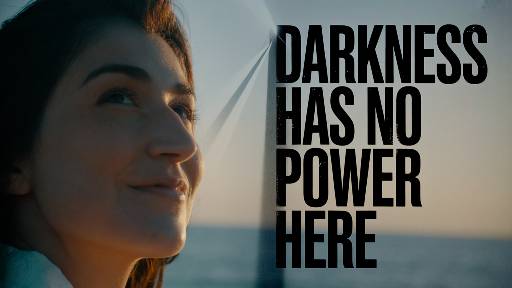-
Keep The Fire Burning
Contributed by Mark Schaeufele on Jul 24, 2019 (message contributor)
Summary: God provides the fire, but it's up to us to keep it burning.
KEEP THE FIRE BURNING
Text: Lev. 6:8-13
Introduction
1. Illustration: A U.S. Lutheran bishop tells of visiting a parish church in California and finding a stirring red and orange banner on the wall. "Come Holy Spirit. Hallelujah!" it declared in words printed under a picture of a fire burning. The bishop was also interested in the sign directly underneath the banner, which said: "Fire extinguisher." So much for that parish's commitment to spiritual renewal.
2. The question we need to ask ourselves this morning is this: are we fire igniter’s or are we fired extinguisher's?
3. In our text this morning we see two groups of people who have a responsibility to keep the fire burning.
A. The Priest's Responsibility
B. The People's responsibility
4. Let's stand together out of respect for the Word Of God as we read Lev. 6:8-13.
Proposition: God provides the fire, but it's up to us to keep it burning.
Transition: The first person we see with a responsibility to keep the fire burning is...
I. The Priest's Responsibility: Keep It Burning (8-11).
A. Must Be Kept Burning
1. In the opening verses of Leviticus 6 God said three times that the fire on the altar was to be "kept burning" (vv. 9,12,13).
A. For example, verse 13 says, "Fire must be kept burning on the altar continually; it must not go out."
B. It is not using an allegorical or typological method of interpretation to say that for the Israelites fire surely would have evoked thoughts of the presence and power of God.
C. That was true for the Israelites in the wilderness who first received these instructions, and its true throughout the Bible. (Moseley, Christ-Centered Exposition Commentary Exalting Jesus in Leviticus, 73)
i. .
2. At the beginning of the Israelites wilderness wandering, Exodus 13:21 says that the Lord went before them as a pillar of cloud during the day and a pillar of fire at night.
A. Exodus 14:24 says the Lord threw the Egyptian army into confusion and appeared to them as a pillar of fire and cloud.
B. Exodus 19 records an awe-inspiring manifestation of Gods presence on Mount Sinai. It says, "Mount Sinai was completely enveloped in smoke because the Lord came down on it in fire" (v. 18).
C. Moses was likely not surprised that the Lord revealed Himself by fire. Moses first close encounter with the Lord was when He appeared to Moses by means of a fire in a bush that burned but was not consumed (Exod 3:2).
D. The Lord also revealed Himself to Ezekiel in a vision of fire (Ezek 1:4,13,27).
E. Daniel had a vision in which the Lords throne was fire, its wheels were burning with fire, and fire came out from the presence of the Lord (Dan 7:9-10).
F. The New Testament also represents God with fire. Hebrews 12:29 calls God "a consuming fire."
G. The book of Revelation says that heaven will need no sun or lamps "because the Lord God will give them light" (22:5), and Jesus will be called "the Bright Morning Star" (v. 16) (Moseley, 74).
3. So the Lord gives Moses this command, "Give Aaron and his sons the following instructions regarding the burnt offering. The burnt offering must be left on top of the altar until the next morning, and the fire on the altar must be kept burning all night."
A. The priests were instructed to keep the burnt offering which burned all night, as well as keep a fire burning on the altar continually.
B. This continual burning suggested an unbroken communion with God at the altar and the continuity of the present fire with the divine ignition of the first fire on the altar, which is narrated in ch. 9.
C. The priests were responsible for meeting this basic need of maintaining the fire at the place of worship, even through the night.
D. This became an object lesson of how, so often in life, the sublimely spiritual experiences require a mundane, monotonous, physical labor on the human side.
E. The priestly ministry was not all glamour or glory, but it was all-important for the ongoing relationship of God to the people (The Complete Biblical Library Leviticus-Numbers, Under: "Chapter 6").
4. Then in v. 10, the instructions for the priest's continue. It says, "In the morning, after the priest on duty has put on his official linen clothing and linen undergarments, he must clean out the ashes of the burnt offering and put them beside the altar. 11 Then he must take off these garments, change back into his regular clothes, and carry the ashes outside the camp to a place that is ceremonially clean."
A. The priests were told in vv. 10f to put the ashes beside the altar, and then change from their priestly garments, and take the ashes outside the camp to a clean place.

 Sermon Central
Sermon Central

